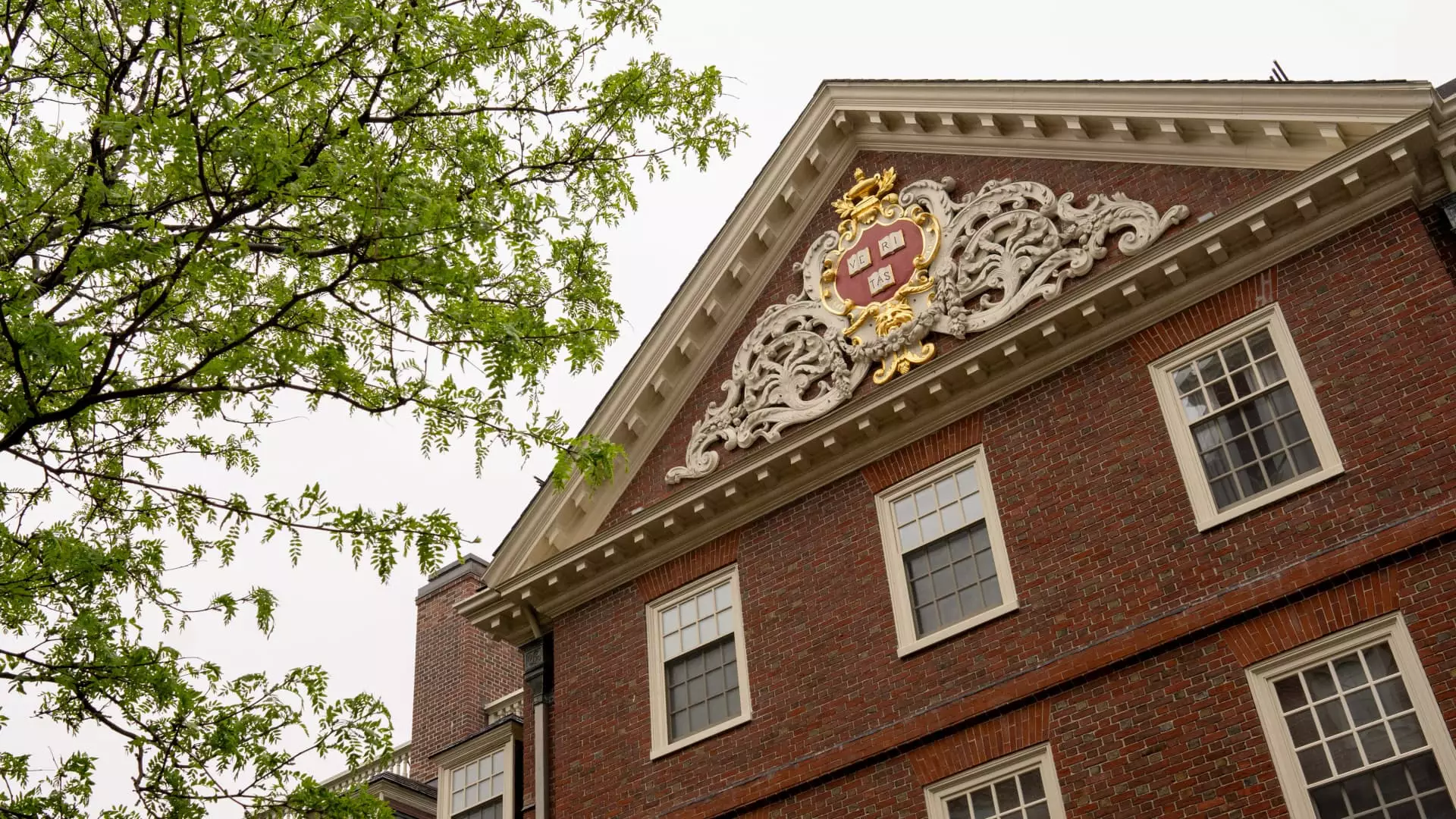In a rather shocking move, former U.S. President Donald Trump has once again thrust himself into a controversial spotlight by proposing to redirect $3 billion in scientific and engineering research grant funding away from Harvard University towards trade schools. His agenda, which many observers deem as a populist tactic, seems aimed at undermining elite institutions while elevating vocational education in the public eye. As discussions around his administration’s fiscal maneuvers gain traction, it becomes clear that these actions serve a dual purpose: bashing academic institutions he deems ‘leftist’ while simultaneously appealing to a base that is increasingly skeptical of traditional educational establishments.
The Underlying Motives: A Quest for Control
Trump’s fixation on Harvard is deeply rooted in his broader campaign against what he sees as an entrenched elitism that propagates a radical leftist ideology. By vilifying prestigious universities such as Harvard—labeling its faculty as “Radical Left idiots”—Trump not only aims to rally support against these institutions but also attempts to position himself as the champion of the common man. The rhetoric used is not casual; it’s strategically designed to incite disdain towards intellectualism, suggesting that institutions of higher learning are out of touch with everyday American life.
This narrative taps into a sentiment that resonates with a significant segment of the population, translating into observable support for Trump’s policies. Although Trump’s comments may appear impulsive, they reflect a more calculated approach aimed at consolidating his political base by appealing to concerns over educational elitism that many outside of Ivy League circles harbor.
Legal Implications: Harvard’s Fight for Autonomy
Harvard’s recent lawsuit against the Trump administration underscores the constitutional ramifications of his funding cuts, framing them as an unconstitutional attack on academic freedom and free speech. It’s worth noting that most of the grant money in question is primarily designated for fundamental biomedical research, the essence of which is markedly different from the hands-on training provided at trade schools. The disparity raises serious questions about Trump’s understanding—or perhaps disregard—for the intricacies of scientific research. His administration’s interference with federal grants is not merely a financial dispute; it reflects a broader struggle over the direction and governance of academic inquiry in the U.S.
Additionally, a recent court ruling temporarily barred Trump’s administration from stopping Harvard from enrolling international students, highlighting the politically charged environment within which higher education operates. This legal interplay reveals not only the stakes involved regarding funding and enrollment but also the accessibility of higher education to diverse populations. The backlash from Harvard is indicative of a larger rebellion against policies aimed at constraining academic freedom and diversity.
The Economic Ramifications of Such Policies
Trump’s threats to revoke federal funding from elite institutions like Harvard could have dire implications. With nearly 6,800 international students contributing significantly to the university’s revenue, such funding cuts could reverberate across the entire educational landscape. The potential financial fallout is profound—not only for Harvard—which serves as a pillar of educational excellence—but also for the broader economic ecosystem that relies on the innovations and research emerging from its halls.
Trade schools undoubtedly serve a critical role in equipping individuals with practical skills but should not be pitted against traditional universities in a divisive narrative framed by political motivations. Instead of fostering an inclusive conversation about educational value, Trump seems bent on creating a rift that overlooks the crucial contributions made by both trade schools and research institutions alike.
A Dual Challenge: Educational Integrity and Political Propaganda
Ultimately, Trump’s ongoing campaign to reposition elite academic institutions poses a significant challenge to the very integrity of educational discourse in America. The archetypal battle between Harvard and the White House is emblematic of a larger tension between populism and academia. It pushes us to ask critical questions about who benefits from such divisive politics and what the long-term impacts will be on intellectual freedom, economic opportunity, and societal progression.
It’s imperative that we advocate for an educational system that recognizes the value of diversity—in thought, discipline, and comprehensive learning. Making educational institutions scapegoats for deeper political and economic frustrations only serves to undermine the future capacity of our society to innovate and thrive in an increasingly complex world. In a climate fraught with ideological polarization, the soul of education must not become collateral damage in the political wars being waged.


Leave a Reply